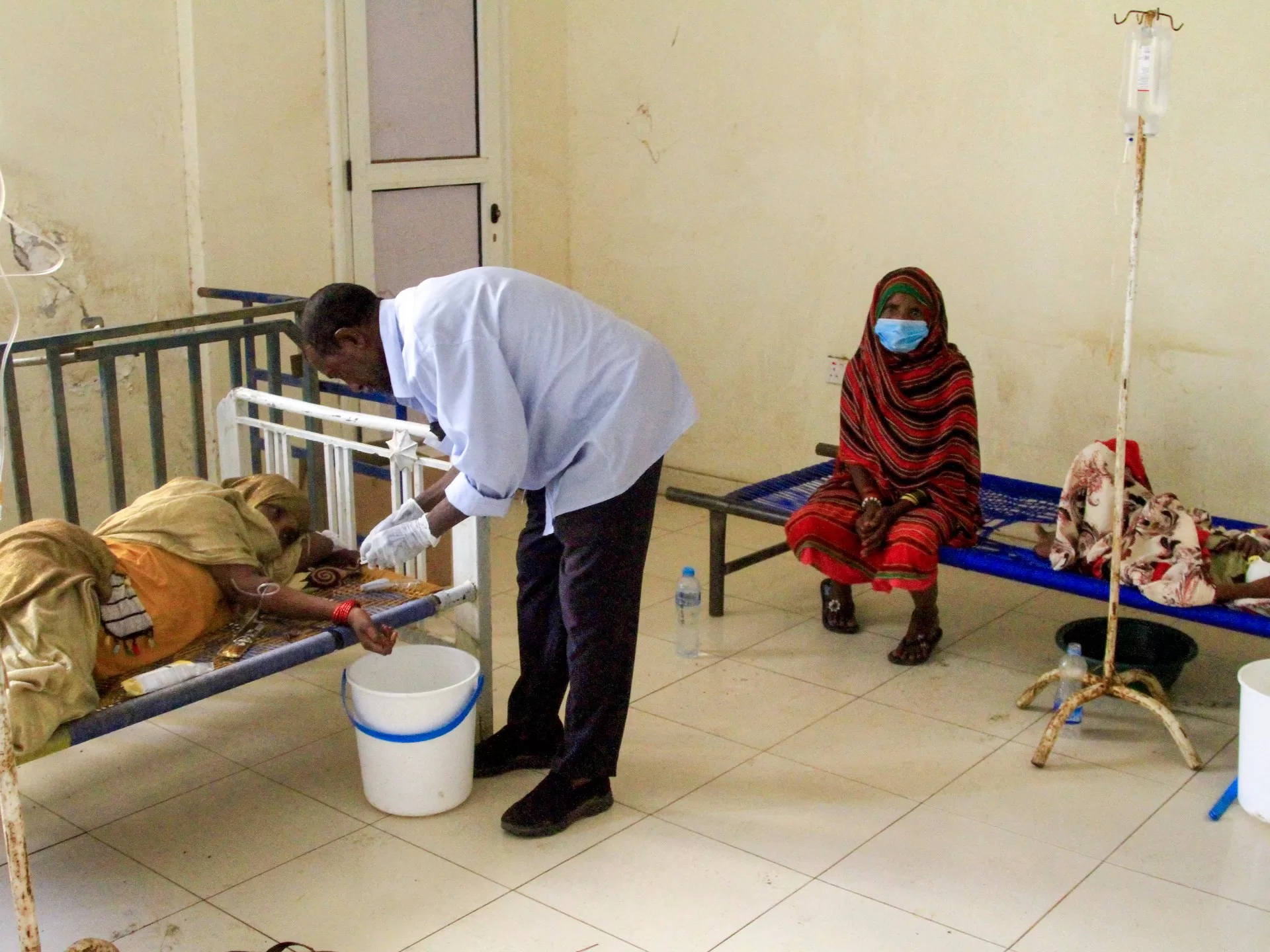Lying on a hospital bed, Aisha Mohammed said she was suffering from cholera symptoms, an increasingly common disease in Sudan where a prolonged war has ravaged the healthcare system.
Cholera, caused by contaminated water or food, had been common in Sudan, particularly during the rainy season even before a conflict broke out in April 2023 between rival generals.
But more than 16 months of fighting have forced most hospitals out of service, leaving the country of 48 million people struggling to control the sometimes deadly but treatable disease.
In the southeastern town of Wad al-Hulaywah, 40-year-old Mohammed received intravenous medicine to ease her symptoms and said she had acute diarrhoea.
Sudanese authorities and the United Nations have reported a surge in cholera cases amid several weeks of torrential rains that have battered parts of the country and displaced thousands.
Rains and floods have contributed to a resurgence of the largely waterborne disease, which can cause severe dehydration and lead to death within hours if not treated.
The Ministry of Health on Monday declared an epidemic, later reporting 556 cholera cases including 27 deaths, most in Kassala state where Wad al-Hulaywah is located.
Nearby Gadarif state has also been hit particularly hard, the ministry said.
The World Health Organization said Sudan has had at least 11,327 cholera cases, 316 of them deadly, since June 2023.
Health Minister Haitham Ibrahim said “climatic conditions and water contamination” were behind the epidemic.
In Wad al-Hulaywah alone “we’ve counted 150 cases so far, among them seven dead” since late July, local health official Adam Ali told the AFP news agency.
Before the start of the war between the Sudanese Armed Forces (SAF) and the paramilitary Rapid Support Forces (RSF), the UN had said that about 40 percent of Sudanese did not have access to clean water. Conditions have since worsened.
“Our problem is drinking water,” said Ali.
Most residents of Wad al-Hulaywah “drink water directly from the river – polluted water”, he said.
During the rainy season, large amounts of silt are washed into the Setit river, which begins in neighbouring Ethiopia, increasing pollution levels, the health official added.
Near the local hospital, workers spray insecticide to fight the proliferation of flies, which Ali said was a symptom of poor sanitation.
Dam construction in 2015 on the Setit river had displaced “entire villages”, he said, and their inhabitants “dug makeshift latrines, which attract flies because they are not maintained”.
Access to clean water has been hampered across the country, in areas under either the SAF or the RSF, both fighting for control of Sudan.
